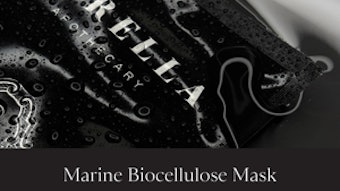
As the demand for environmentally friendly and sustainable products continues to grow, so does the number of brands and businesses that make claims of being "green" or "eco-friendly". This marketing technique, known as greenwashing, can be misleading to consumers and cause harm to the environment. Spa professionals who sell cosmetics must be vigilant in spotting greenwashing and choosing products that are truly sustainable. In this article, we will explore what greenwashing is, the warning signs to look out for, and how to avoid it in cosmetic products.
Log in to view the full article
As the demand for environmentally friendly and sustainable products continues to grow, so does the number of brands and businesses that make claims of being "green" or "eco-friendly". This marketing technique, known as greenwashing, can be misleading to consumers and cause harm to the environment. Spa professionals who sell cosmetics must be vigilant in spotting greenwashing and choosing products that are truly sustainable. In this article, we will explore what greenwashing is, the warning signs to look out for, and how to avoid it in cosmetic products.
What is Greenwashing?
Greenwashing is a marketing technique used by companies to create the impression that their products or services are environmentally friendly or sustainable, when in reality they are not. The term "greenwashing" was coined in the 1980s by environmentalist Jay Westerveld. Companies may use misleading labels, vague or unsubstantiated claims, or manipulative language to create a false impression of their products' sustainability.
Greenwashing is a form of deception that can mislead consumers (and spa professionals alike) into thinking they are making environmentally conscious choices, when in reality, they are not. This can lead to negative consequences for the environment, as consumers may continue to buy products that harm the environment, believing they are doing the opposite.
Warning Signs of Greenwashing
To avoid falling prey to greenwashing, spa professionals must be aware of the warning signs. Some of the most common signs of greenwashing include:
- Vague or Unsubstantiated Claims: Companies may use vague or unsubstantiated claims like "natural" or "eco-friendly" without providing any specific details or certifications to back up those claims.
- Irrelevant Claims: A company may make claims that are technically true, but irrelevant to the product's environmental impact, such as advertising a product as "CFC-free" when CFCs are already banned.
- Hidden Trade-offs: A company may focus on one aspect of their product's sustainability, while ignoring other negative environmental impacts. For example, a product may be marketed as being made from sustainable materials, but it may still have a large carbon footprint due to the manufacturing process.
- Lesser of Two Evils: A company may position their product as the "green" alternative, even though it is still harmful to the environment. For example, a disposable product may be marketed as "eco-friendly" because it is made from biodegradable materials, even though the product still has a negative impact on the environment.
- Lack of Third-Party Certifications: Third-party certifications, such as the Forest Stewardship Council or the Rainforest Alliance, can provide consumers with reassurance that a product is sustainable. If a product lacks these certifications, it may be a warning sign of greenwashing.
Related: How Greenwashing Actually Threatens Sustainability
How to Avoid Greenwashing
Spa professionals can avoid greenwashing by following these steps:
- Do Your Research: Before selling a product, research the company and the product's environmental impact. Look for specific details and certifications that support the company's sustainability claims.
- Look for Third-Party Certifications: Third-party certifications provide reassurance that a product is truly sustainable. Look for certifications like the Forest Stewardship Council or the Rainforest Alliance.
- Beware of Vague Claims: Be wary of products that make vague or unsubstantiated claims of being "natural" or "eco-friendly". Look for specific details and certifications that support those claims.
- Look Beyond Marketing: Look beyond the marketing language and advertising to understand the full environmental impact of a product. Consider the entire lifecycle of the product, from manufacturing to disposal.
- Encourage Transparency: Encourage companies to be transparent about their environmental impact and to provide specific details and certifications to back up their sustainability claims.
Unfortunately, greenwashing is a common and deceptive marketing technique that can harm both consumers and the environment. For spa professionals who use and retail cosmetics, it is crucial to be aware of the warning signs of greenwashing and to choose products that are truly sustainable. By doing their research, looking for third-party certifications, and encouraging transparency from companies, spa professionals can help protect their clients and the planet from the negative effects of greenwashing.
As consumers become more environmentally conscious and demand more sustainable products, it is likely that the trend of greenwashing will continue. However, by staying vigilant and informed, spa professionals can help promote genuine sustainability in the industry and make a positive impact on the world around us. Let's work together to create a more sustainable future for ourselves and for generations to come.










